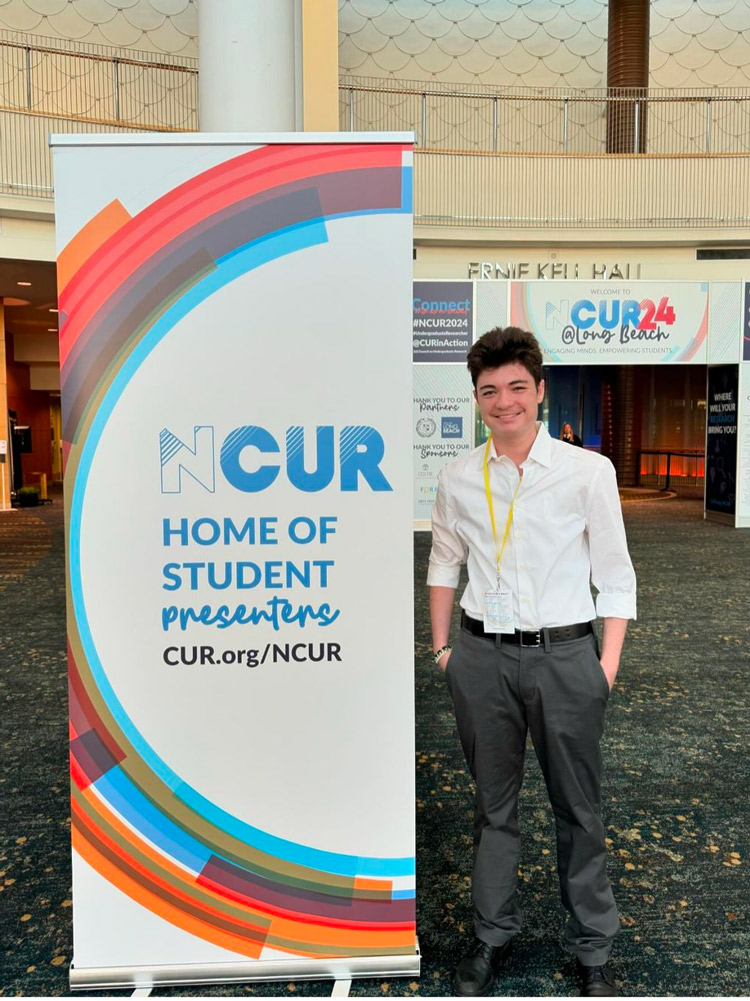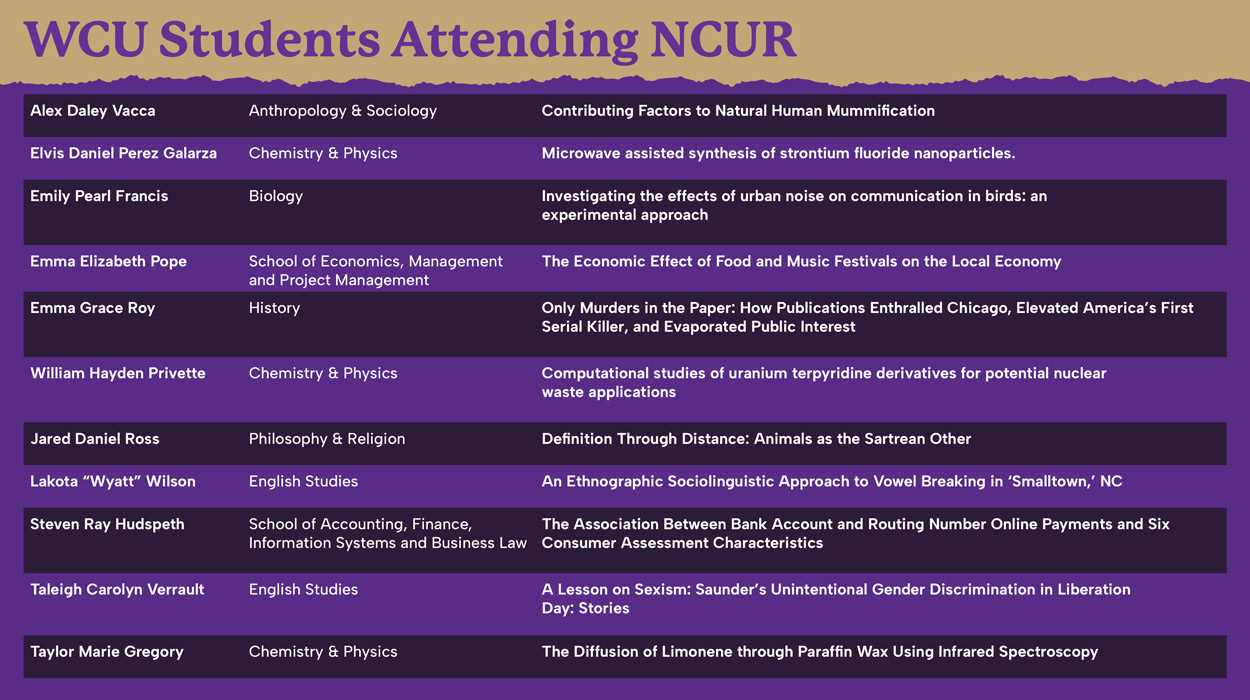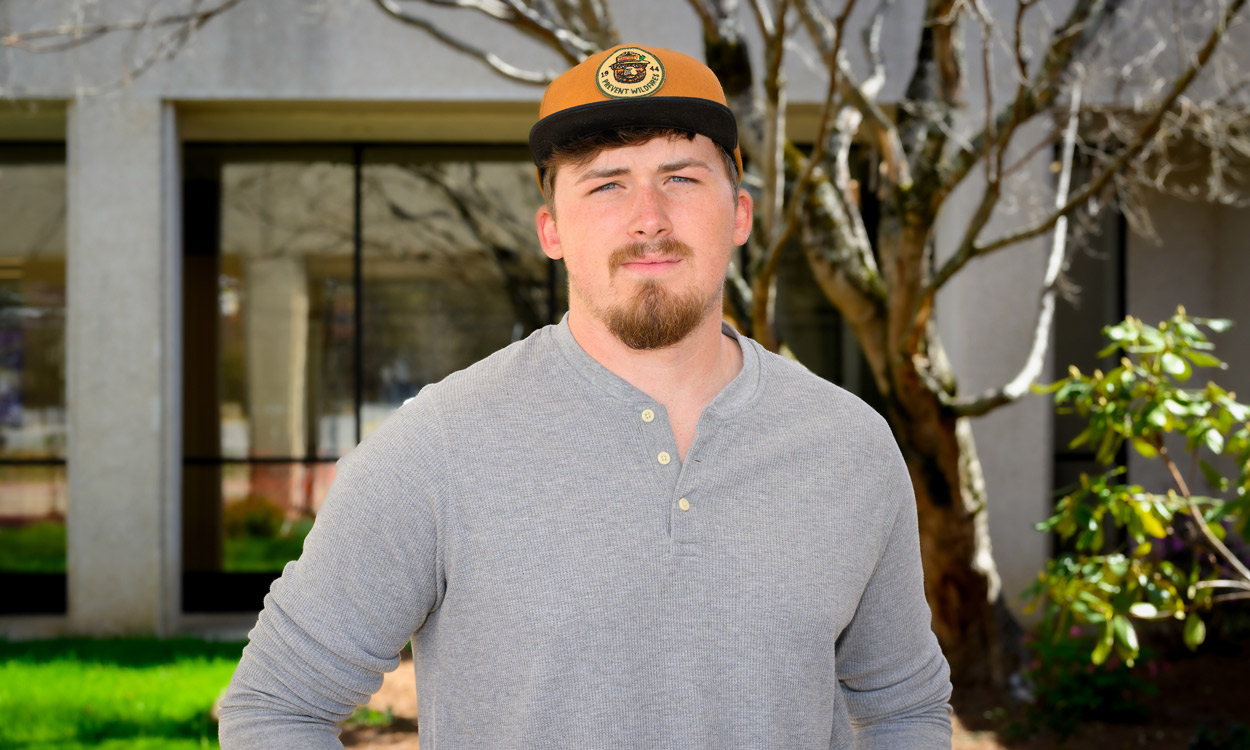Undergrad finds fascination in mummies
By Chaz Lilly
As a forensic anthropology major, Alex Vacca is fascinated by mummies.
His interest started with the mummies of ancient Egypt, those gauze-wrapped bodies buried deep inside the pyramids. In high school, Vacca learned about the Mummies of Llullaillaco, three Inca child mummies found high in the Andes mountains of Argentina. And when he started thinking about college, he discovered Western Carolina University had a human decomposition research facility where he could study – you guessed it – mummification.
“Access to the research facility was one of the main reasons I applied to Western,” Vacca said. “But I didn’t realize the extent of access to research and people I’d have here. It’s been great.”
The Forensic Osteology Research Station was the second human decomposition research facility in the world, established in 2007.

Alex Vacca
When calls came out for undergraduates to submit proposals for the National Conference on Undergraduate Research, Vacca went to his professor, Kaleigh Best, who specializes in the study of human skeletal remains in forensic and bio-archaeological contexts.
“NCUR is a great opportunity for students to get involved,” Best said. “We have a lot of student research in our department. We want our undergraduates to have as much experience as possible before they move on to the next phase of their careers.”
Vacca said he started by seeing where the gaps were in the research. He mostly focused on understanding why and how natural mummification happens in temperate climates.
“Dr. Best and I talked about where the need is in research. Natural mummification is known to occur in a diverse range of global locations throughout time, including in temperate climates. However, the factors that contribute to natural mummification remain poorly understood in current literature,” Vacca said.
Right now, Vacca has finished his literature review study to assess what variables appear to contribute to natural mummification in relation to the decomposition process. He has examined where reported rates of natural mummification are known to occur and hypothesize what factors may lead to natural mummification. Those variables will be evaluated to see if they can be subjected to further experimentation to help answer how and why mummification occurs in such a wide variety of climates, including, specifically, the temperate climate of Western North Carolina.
“This research as it evolves from the literature review stage will provide new information to the field of human taphonomy concerning mummification patterns,” Vacca said. “It will serve as an important step in better understanding the factors that contribute to the widely observed phenomenon of natural mummification.”
After NCUR, the Best and Vacca intend to continue their work together and develop their project further.


